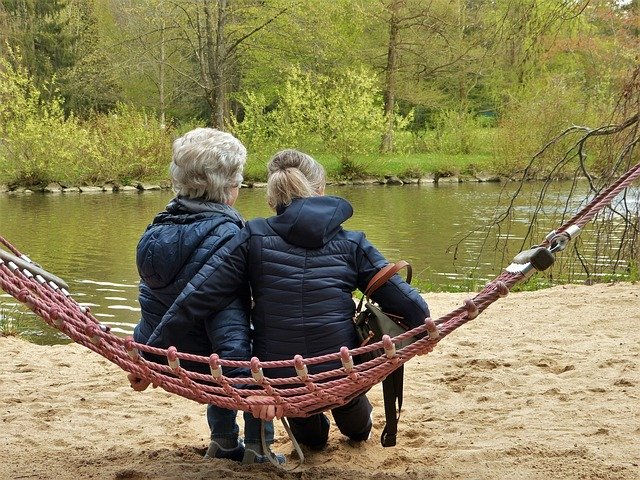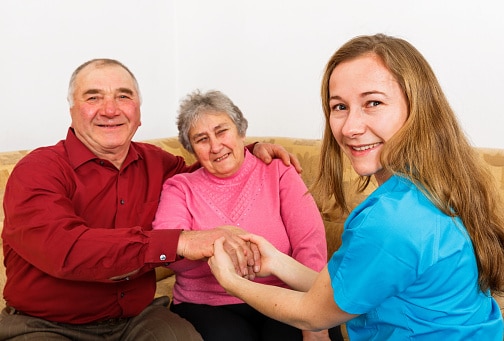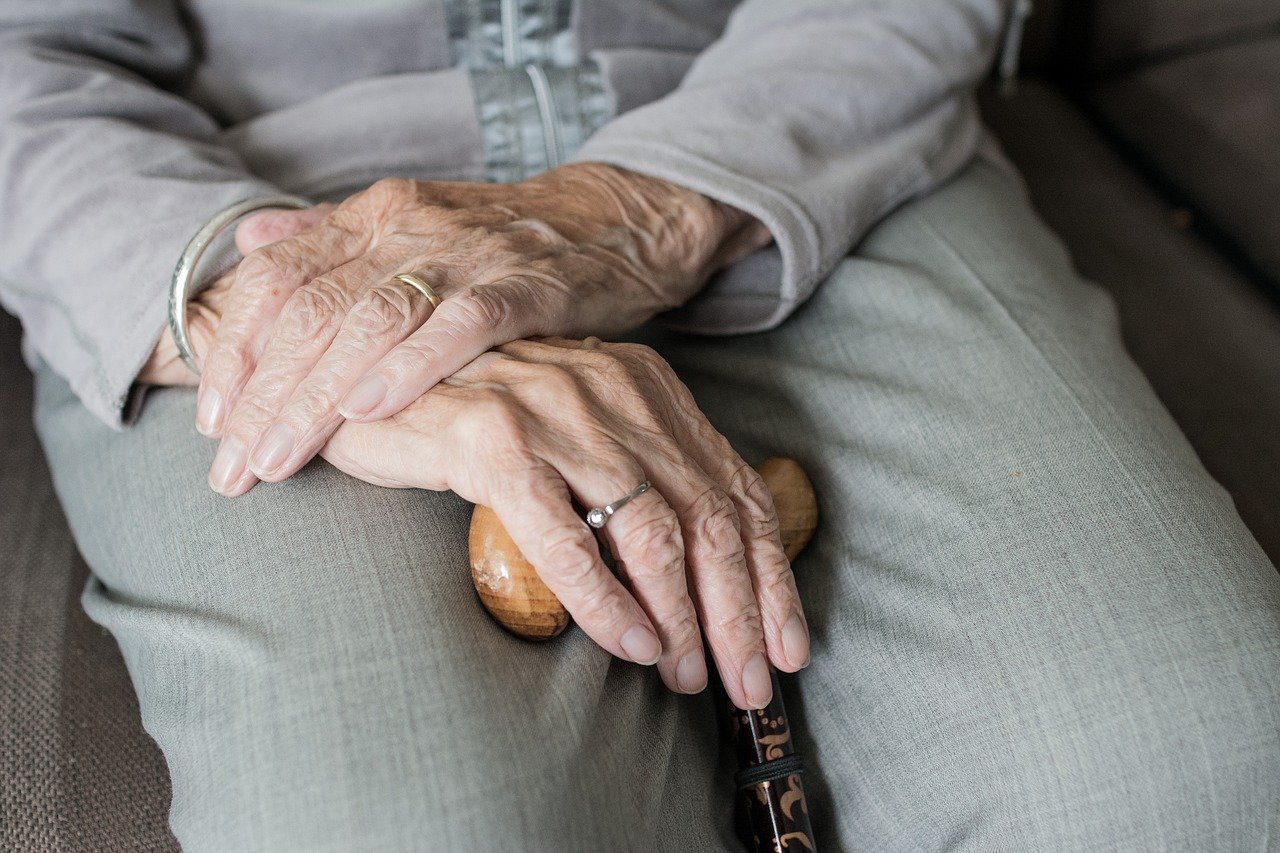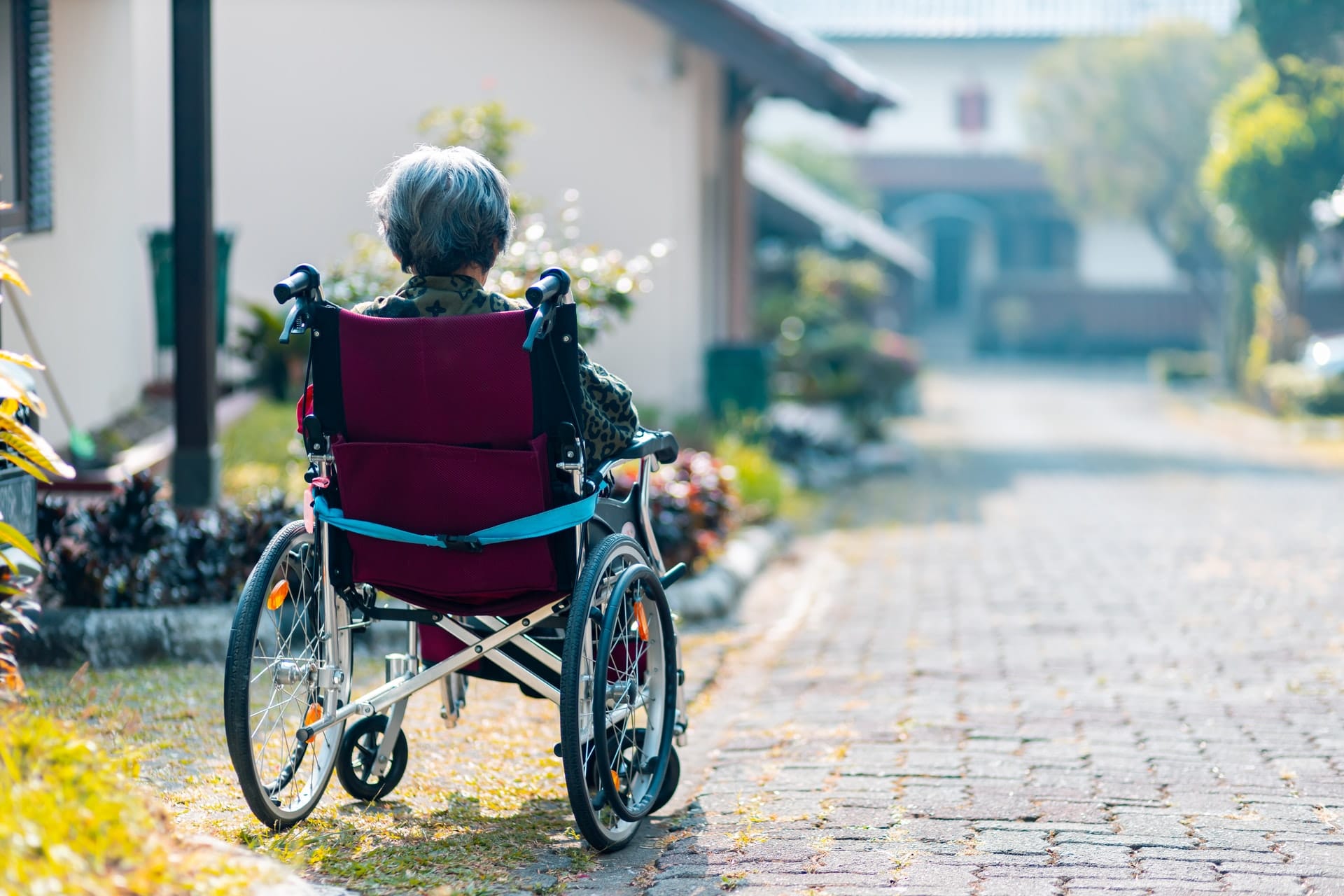
Dementia Care: A Caregivers Guide
This article has been medically reviewed by Dr. Martin Duggan in 2021.
This content is not intended to be a substitute for professional medical advice, diagnosis, or treatment. Always seek the advice of your physician or another qualified health provider with any questions you may have regarding a medical condition.
Dementia is the most common reason adults end up in caregiving roles. While it is not a specific disease, dementia is a constellation of problems that revolve around declining memory and other cognitive abilities. It’s a general term for diseases that cause progressive memory loss and cognitive impairment.
Alzheimer’s disease is the most common form of dementia, but there are several other ways the condition can develop. Vascular Dementia, which occurs due to accumulated large and small strokes, is the second most common form of dementia. Other common forms include Lewey-Body Dementia and Fronto-Temporal Dementia.
As a caregiver, you may know that dementia in any form can cause confusion and stress for the sufferer and their loved ones. It is crucial to ensure you have the information and support you need to prepare for the journey ahead.
Dementia caregivers can experience burnout, stress, and emotional difficulties. Fortunately, there are plenty of ways to minimize these effects. Staying informed on the condition, building a toolkit for managing dementia care, and taking care of yourself are a few of the best ways to maximize quality of life for both you and your loved one.
Below you will find more information about dementia in the elderly and we will review some strategies for planning daily routines as a caregiver. While providing dementia care can take an immense toll on many areas of life, caregivers are not alone. You deserve support, too. Read on to find information that can improve your caregiver experience.
An overview of dementia in the elderly
Dementia becomes more common as people age, and most people with the condition are 65 or older. Statistics show the percentage of people with Alzheimer’s dementia increases with age, but it is not a normal part of the aging process. 3% of people aged 65-74 have the condition, while the number jumps to 17% in people aged 75-84, and 32% in people 85 or older. Here are some other facts to know about this illness:
- Dementia is a progressive brain disorder that disrupts our normal capacity to think, remember, communicate, and carry out daily activities.
- Around 5.8 million Americans aged 65 or older have Alzheimer’s. 80% of those sufferers are 75 or older.
- An estimated 50 million people around the world have dementia.
- Dementia is one of the main reasons older adults become dependent on a caregiver.
- There are currently no known treatments that cure or reverse neurodegenerative forms of dementia.
Risk factors and forms of dementia
Age is the most common risk factor associated with dementia – the older we get, the more likely we are to suffer from it. There are a few other things that have been linked with an increased likelihood of developing dementia, such as genetics, cardiovascular disease, and traumatic brain injury. There are other factors that may be protective such as high levels of education and academic achievement.
Here are the most common types of dementia:
- Alzheimer’s disease, which makes up between 60-80%of cases
- Mixed pathologies, defined when more than one brain change associated with dementia is present
- Lewy body disease
- Cerebrovascular disease
- Fronto-temporal lobar degeneration
- Parkinson’s disease
Signs and symptoms of dementia
Through the course of the condition, there are signs and symptoms that may be harbingers of either the initial development of dementia or its progression. By knowing a bit about how dementia typically progresses, we can have a better idea of what to expect and how to plan and prepare for what comes next. Here are a few of the signs that tell us that the disease has progressed into a new phase:
- In the early stages of dementia, you may notice your loved one is often forgetful of small details, gets lost easily, and misplaces things.
- In the middle stages of dementia, you can expect your loved one to forget names, faces, and recent events. They may become lost in familiar environments and need help with basic tasks. Your loved ones may repeat themselves and behave in unusual ways.
- In the later stages of dementia, your loved one will be almost entirely dependent on you in every stage of their daily routines. They may be quite confused about the year or their location. They may find it difficult to stand or walk without help.
- In the final stage of dementia, your loved one may need help going to the bathroom and cleaning themselves. They may also lose their ability to swallow normally and may even lose the ability to speak. The very last thing to go, present to the very end of life, is the smile on their face when they see you. This social smile persists until the end, and when it goes away, we know that our loved one is ready to move on from this life.
Each stage of dementia presents immense emotional and logistical challenges to caregivers. Read on for ideas to help manage the caregiving process. These ideas can help you and your loved one achieve a better quality of life during this unpredictable journey. You can learn more about the stages of dementia here.
Caring for yourself while caring for someone with dementia
Providing care for a loved one suffering from dementia can impart financial, physical, and mental stress. Many caregivers have sacrificed enormously for loved ones. It can often feel like a thankless role.
It is easy to forget, but caregivers can improve someone’s life just by being present each day. But sometimes, we can feel overwhelmed. When we do, it is important for ourselves and for the people who need us, that we reach out for support from family, friends, or from a mental health professional. Here are a few of the symptoms you may experience at some point in your caregiving journey.
- Mental health issues like anxiety and depression
- Burnout and exhaustion
- Sleep disturbances
- Grief and loneliness
- Heightened stress levels
- Emotional overload
- Increased muscle tension
- Financial strain
5 Caregiving tips for dementia care
Knowing the challenges of caregiving does not mean you will be able to prevent them. However, there are some ways you can improve your caregiving experience to minimize the negative effects.
1. Develop a structured, yet achievable routine
As your family member’s condition evolves, they may become less mobile or able to carry out basic tasks. This is an upsetting process for both of you, but you can reduce frustration by establishing a clear routine.
Come up with a daily schedule to stick to each day, incorporating your loved one’s needs, abilities, and preferences. This may seem overwhelming at first, but once you get used to the routine, it can create a sense of familiarity that is comforting to both of you. Here are a few components to include when developing your routine.
- A predictable morning routine: Wake up at the same time each day and prepare for the day together. Eat breakfast and engage in conversation. Incorporate one engaging activity like reading together or making something with your hands. Add in a light physical activity like a walk around the neighborhood.
- A structured afternoon routine: Eat lunch together and take time to catch up on household chores. Engage in one of your loved one’s old favorite activities like gardening or doing puzzles in the newspaper. Let your loved one have some quiet time and use it as a chance to do something kind for yourself.
- A reassuring nighttime routine: Nighttime sometimes brings anxiety with it, but a nice routine can help. Eat dinner together and discuss any lighthearted topics that come to mind. Catch up on chores and spend some time doing a relaxing activity like watching television or playing a game. Prepare for sleep by bathing and reading in bed.
2. Create a safe and supportive environment
Another component that can provide a bit of ease is adjusting the environment to work best for you and your loved one. Here are a few ways you can improve the environment to alleviate frustration.
- Remove rugs and other items that may be tripping hazards.
- Organize your loved one’s favorite items so they can reach them easily. Clothes, books, crafts, and other go-to items are more comforting when they are accessible.
- Provide tools to help your loved one. For example, if they need help reaching items on the floor, you can purchase a hand-held grabbing tool.
- If possible, you may want to install items like a bath chair, support railing, automatic sink, or automatic lights if your loved one cannot remember how to use them.
3. Adjust your expectations
Your relationship with your loved one has changed, but that doesn’t mean you can’t work together. If possible, ask your loved one how they would like to spend their days. Get them involved with household chores and let them make some basic decisions. Learn to collaborate where you can to arrive at a new normal that works for both of you. Maybe you need to sponge bathe rather than showering every other night. Perhaps your chore schedule could be more relaxed. Make the daily moments doable for you to alleviate strain wherever possible.
4. Practice reaching out
As you get further into your caregiving role, you may notice people have stopped reaching out as often. This can feel isolating, but it is likely not because your loved ones have stopped caring. They may not want to overwhelm you, or they may not know how to help. Reaching out to others is a great way to maintain connections despite your situation’s difficulties, and those who love you will be happy to offer support.
5. Take care of yourself
Studies show that dementia caregivers experience a heavier stress load than other caregivers, often devoting more than 40 hours a week to the role. You may feel that this road is yours to walk alone, but taking care of yourself and seeking support are crucial for improving your experience as a caregiver.
Taking care of yourself is one of the most important aspects of caregiving, yet is often overlooked. Of the estimated 10 million dementia care caregivers, around two-thirds suffer from sleep disturbances associated with physical or mental health issues or living with the dementia patient in their home. There are many repercussions to neglecting your own wellbeing, so practice showing up for yourself whenever you can. Here are some ways you can work to care for yourself:
- Prepare tools for yourself like a pre-packed overnight bag, emergency phone number list, organized medicine container, and printed daily schedule to make your life easier.
- Practice accepting help. Cooking, cleaning, maintenance work, yard work, financial planning, caregiving, and more are too much for one person to handle alone. You may not want to burden others, but having a support system is crucial for improving your daily life.
- Take time each day for you. Observe when your loved one takes a nap or has quiet time, and use that time for yourself. Call an old friend, exercise, or make your favorite hot drink. These moments to yourself will make a world of difference.
- Read a book on caregiving. These books can help you manage caregiving. Reading books on dementia care can help you alleviate stress and care for your loved on better.
Sources:
- Facts and Figures, Alzheimer’s Association, www.alz.org
- Dementia, WHO, www.who.int
- What Is Dementia?, CDC.gov, www.cdc.gov
- Helpful routines and reminders, Alzheimer Society of Canada, alzheimer.ca
- Family caregivers of people with dementia, NCBI, www.ncbi.nlm.nih.gov
- Sleep disturbances in caregivers of persons with dementia: Contributing factors and treatment implications, NCBI, www.ncbi.nlm.nih.gov
Related Articles

When Is It Time for Assisted Living?
Wondering if it is time for assisted living for your loved one is a common question for caregivers. As a caregiver, you might have been considering the question for months or possibly even years. Your loved one might have declined to continue the discussion as the thought of moving out of their family home and […]

All About Adult Day Care: Community and Costs
Adult day care is a fairly new concept for caregivers. The basic idea is to provide a secure place where seniors can enjoy social activities during the day and be provided nursing care as needed. It’s a hybrid model of eldercare that prioritizes community. At the same time, seniors get help with common custodial tasks […]

An Overview of Senior Rehabilitation Centers
Recovering from injury or illness in your golden years may take time and support. That’s where senior rehabilitation centers become essential. If you need a temporary stay to recover from injury or illness, senior rehabilitation centers can be the solution to get expert care and daily support. In this article, we’ll give you an overview […]

A Caregiver’s Guide to ADLs and IADLs
This article has been medically reviewed by Dr. Martin Duggan in 2021. This content is not intended to be a substitute for professional medical advice, diagnosis, or treatment. Always seek the advice of your physician or another qualified health provider with any questions you may have regarding a medical condition. As a family caregiver, your […]

What is a Mechanical Soft Diet? Explanation, Preparation, and Meal Ideas
This article has been medically reviewed by Dr. Martin Duggan in 2021. This content is not intended to be a substitute for professional medical advice, diagnosis, or treatment. Always seek the advice of your physician or another qualified health provider with any questions you may have regarding a medical condition. As a caregiver, you may […]

Benefits for Seniors with Disabilities
Oftentimes, seniors with disabilities qualify for health and financial assistance programs. However, they may be unaware of them or are confused about the eligibility requirements and enrollment process. Let’s go over the key programs for seniors with disabilities so that you have the information you need to get the benefits you deserve. Note on the 3 […]